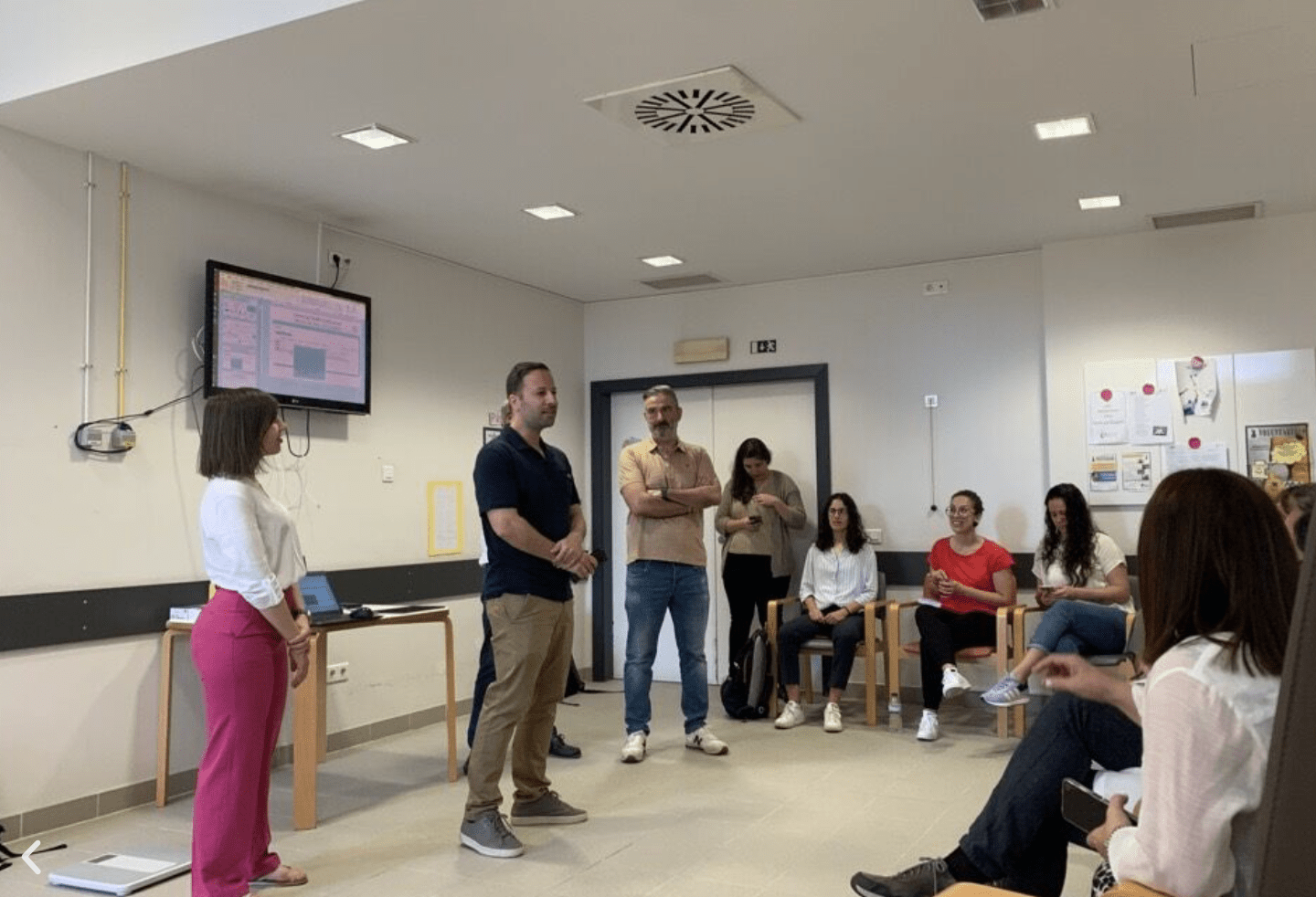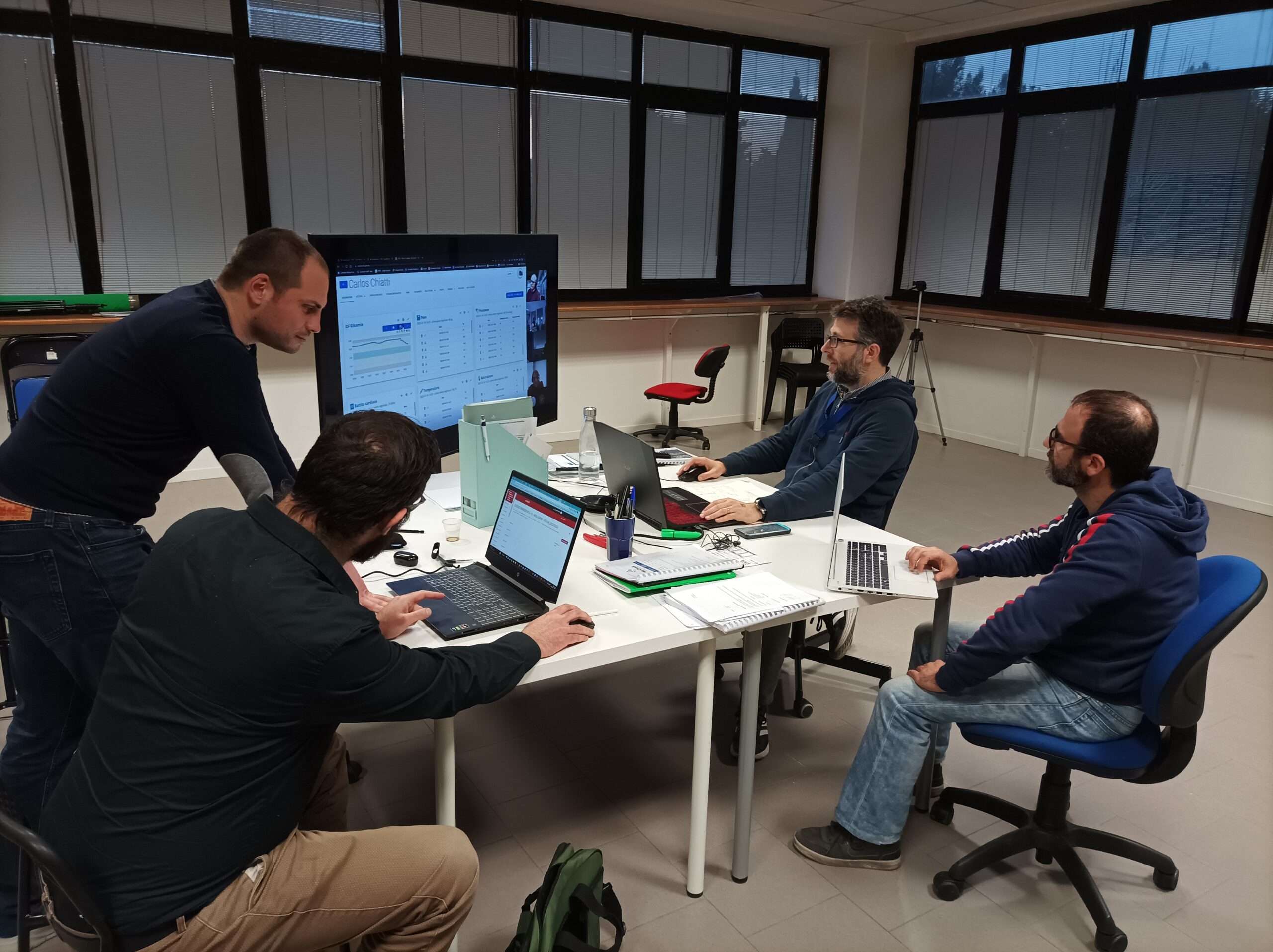INCAREHEART recently held test sessions of the prototypes of our supplier’s solutions at our pilot sites around Europe. In this blog, Elianne Timmersten from our Swedish partner Region Jämtland Härjedalen shares her reflection on the sessions and how our project can help people managing chronic heart failure while living in rural areas away from their care facilities.
As a large region where the population is spread throughout, we are considered a sparsely populated area. To put this into perspective, the area of Jämtland is larger than the country of Denmark and several other of the smaller countries in Europe. This poses a challenge for our healthcare, emergency care and our patients as it’s not an uncommon situation that a patient will need to travel a long distance to receive healthcare. Similarly, emergency first responders have quite some distances to travel sometimes to reach the patients that need emergency attention to then bring them to the hospital.
This means that patients with chronic conditions living outside urban areas face health anxiety and struggles that are different to someone living locally in large cities with healthcare readily available within minutes. They must consider the time it takes to travel to and from their destination, road conditions (especially if it is winter because of the snow and ice), the daily commute if it is in the morning or afternoon, the time the appointment takes, and perhaps they might even need to have a meal before leaving to go back home. Perhaps their meals are even a part of their care plan, and it is essential that they have it around a specific time. An appointment that takes about 1 hour, travelling included, for someone living locally with their hospital nearby could end up taking 5 hours or more for someone living outside town. Understandably, that is a great stress and can be a burden on someone’s day, especially if they need to go in more than once in a short period of time for one reason or the other. It is important to remember that this could have an impact on additional aspects of a patient’s life other than their physical health and their diagnosis, but aspects that might still affect their stress levels such as missing important events to prioritize a checkup and private finances due to travel cost. Patients living with chronic conditions shouldn’t have to move from their homes if they are living with a condition that could be managed in an effective and independent way. Being forced to move because of one’s physical health could have a negative impact on the patient’s mental health, which in turn could negatively impact the adherence to the treatment plan and the general health of the patient. A patient should be able to thrive, have a good quality of life and feel like they are in control of their health no matter if they live in a big city close to healthcare, or outside on the countryside. This is where the INCAREHEART ICT-enabled technical solutions could aid in ensuring that the quality of life for the patient stays positive, that taking care of one’s health is easy and manageable. By having the tools available at home, having an accessible platform and system where the care professionals can follow the results, status and adherence to the treatment plan remotely, the patient will be able to keep track of their health progression with less worry effectively. The clinicians will be able to give advice and adjust treatment remotely, effectively reduce the amount of in person visits by the patient unless deemed necessary while referring to the patients results, improve patient stress levels, and reduce hospitalization rates.
During the prototype viewing in Region Jämtland Härjedalen the wife of a patient discussed this topic with us. “We live locally now, so it is much easier for us to receive care. Had my husband gotten his diagnosis while we were still living in our home outside town things would have immediately become harder for us. We would have had to travel very long distances to make sure everything is alright whenever we were worried, with a solution like this that worry could have been avoided.“


